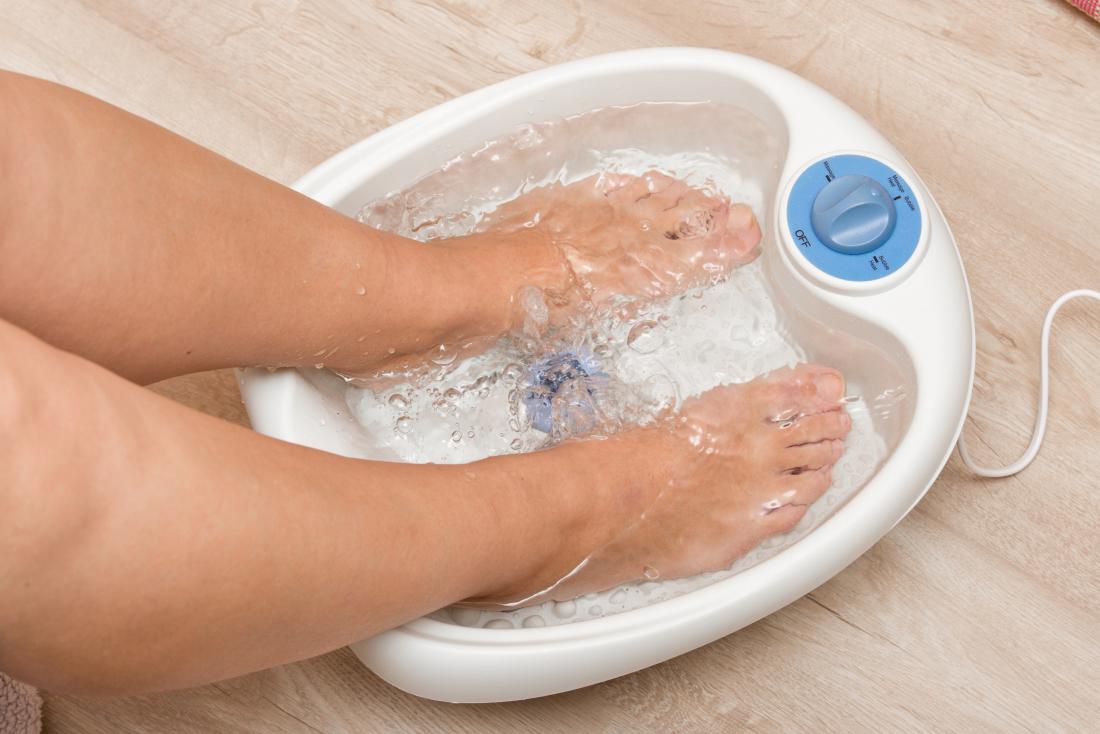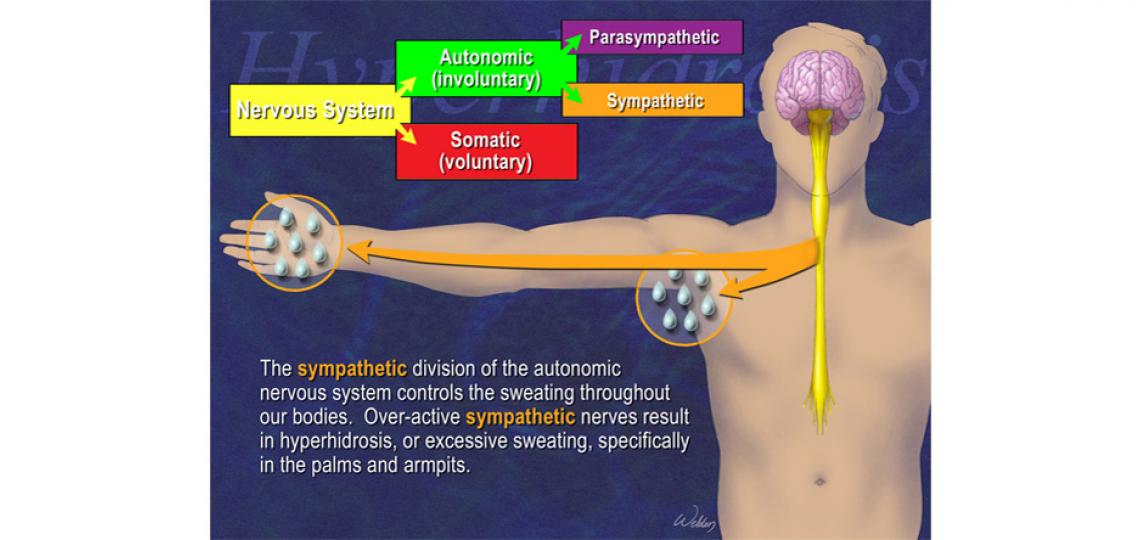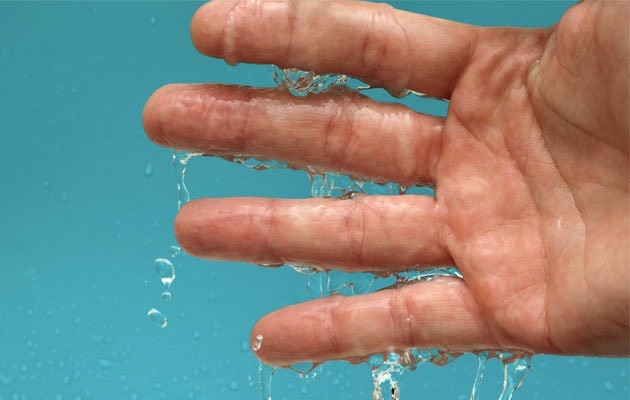Targeted Dermatology Treatments for Hyperhydrosis of Hands and Feet: Reliable Solutions
Targeted Dermatology Treatments for Hyperhydrosis of Hands and Feet: Reliable Solutions
Blog Article
Understanding the Source of Excessive Sweating and Its Effect On Daily Life
While it is generally understood as a physiological reaction to control body temperature level, the triggers for excessive sweating can differ extensively amongst people, incorporating not just physical factors however emotional and additionally emotional aspects. By delving into the origin triggers of hyperhidrosis and exploring its complex impacts, a deeper understanding of this pervasive problem can be gotten, dropping light on the complexities that individuals grappling with too much sweating browse on an everyday basis.
Physiology of Sweat Glands
The guideline of sweat manufacturing, a crucial physical process, is mainly regulated by the task of sweat glands distributed across the human body. Sweat glands are classified into 2 main kinds: eccrine and apocrine glands.
When the body temperature level rises, either because of exercise, high temperature levels, or emotional stress, the nervous system sets off the gland to create sweat. This sweat is made up mostly of water and electrolytes like salt and chloride. The procedure of sweat production is vital for keeping the body's interior temperature level within a narrow, optimal array, highlighting the important role gland play in human physiology.
Triggers for Excessive Sweating
In comprehending the root causes of too much sweating, it is critical to recognize the triggers that can result in this physiological response. Excessive sweating, also known as hyperhidrosis, can be triggered by different elements, both environmental and physical. One typical trigger is emotional stress or anxiety, which can stimulate the body's sweat glands to create even more sweat than is necessary for cooling. Physical exertion, heats, and spicy foods are likewise known to set off too much sweating in individuals prone to this condition. Certain clinical problems like hyperthyroidism, menopause, or diabetes can add to excessive sweating as well.
Additionally, medications such as some antidepressants, opioids, and specific supplements can likewise serve as triggers for hyperhidrosis. Understanding these triggers is crucial in managing excessive sweating successfully - How to stop sweaty hands. By identifying and dealing with the certain triggers that prompt extreme sweating in an individual, doctor can create personalized treatment plans to minimize this condition and boost the individual's lifestyle
Medical Issue Associated
Related to extreme sweating are different clinical conditions that can intensify this physiological feedback. One typical condition is hyperhidrosis, a problem identified by abnormally boosted sweating that goes beyond the body's thermoregulatory demands. This can show up in focal areas like the palms, soles, underarms, or face, affecting a person's lifestyle as a result of social embarrassment and pain.
Furthermore, endocrine disorders such as hyperthyroidism, diabetes mellitus, and menopausal warm flashes can likewise lead to extreme sweating. Hyperthyroidism triggers an overproduction of thyroid hormones, increasing metabolic rate and setting off sweating.
Moreover, infections like tuberculosis, HIV, and endocarditis have been connected with evening useful source sweats, a typical sign known to interfere with rest and influence overall wellness. These clinical problems highlight the varied variety of underlying aspects that can contribute to too much sweating, necessitating complete examination and management by medical care experts.
Emotional and Mental Factors

Effect On Social Interactions
Too much sweating can have extensive results on a person's ability to engage pleasantly in social interactions. The visible indicators of sweat spots or wet spots on clothes can cause shame and self-consciousness, triggering people to take out from social scenarios. This withdrawal can influence partnerships, limitation social tasks, and prevent expert and individual growth.

In addition, the anxiousness and self-worth concerns stemming from extreme sweating can Get More Info affect interaction and interpersonal skills. People may have a hard time to concentrate on conversations, take part in team activities, or share themselves with confidence. This can cause sensations of isolation and solitude, as social links come to be challenging to maintain.
Final Thought

While it is frequently recognized as a physical action to control body temperature, the triggers for extreme sweating can vary widely among people, incorporating not just physical elements but psychological and also psychological aspects. By delving right into the root causes of hyperhidrosis and exploring its multifaceted effects, a deeper understanding of this prevalent issue can be obtained, shedding light on the complexities that people grappling with extreme sweating browse on an everyday basis.
Physical effort, high temperatures, and spicy foods are additionally recognized to set off too much sweating in individuals vulnerable to this More about the author problem. By determining and addressing the particular triggers that prompt too much sweating in an individual, health care service providers can develop individualized treatment strategies to reduce this condition and boost the person's top quality of life.
Excessive sweating can have profound results on a person's capacity to involve comfortably in social interactions.
Report this page